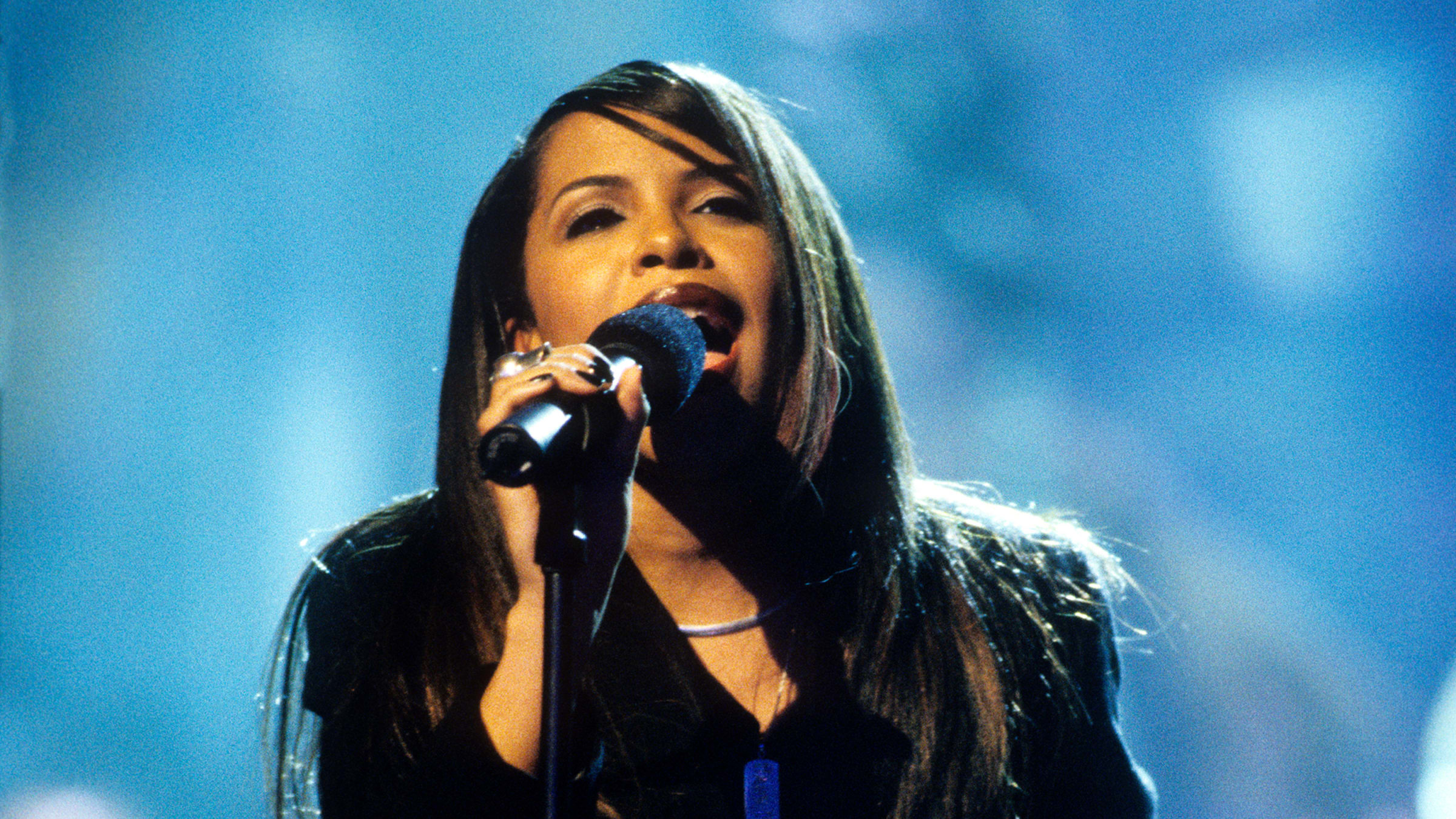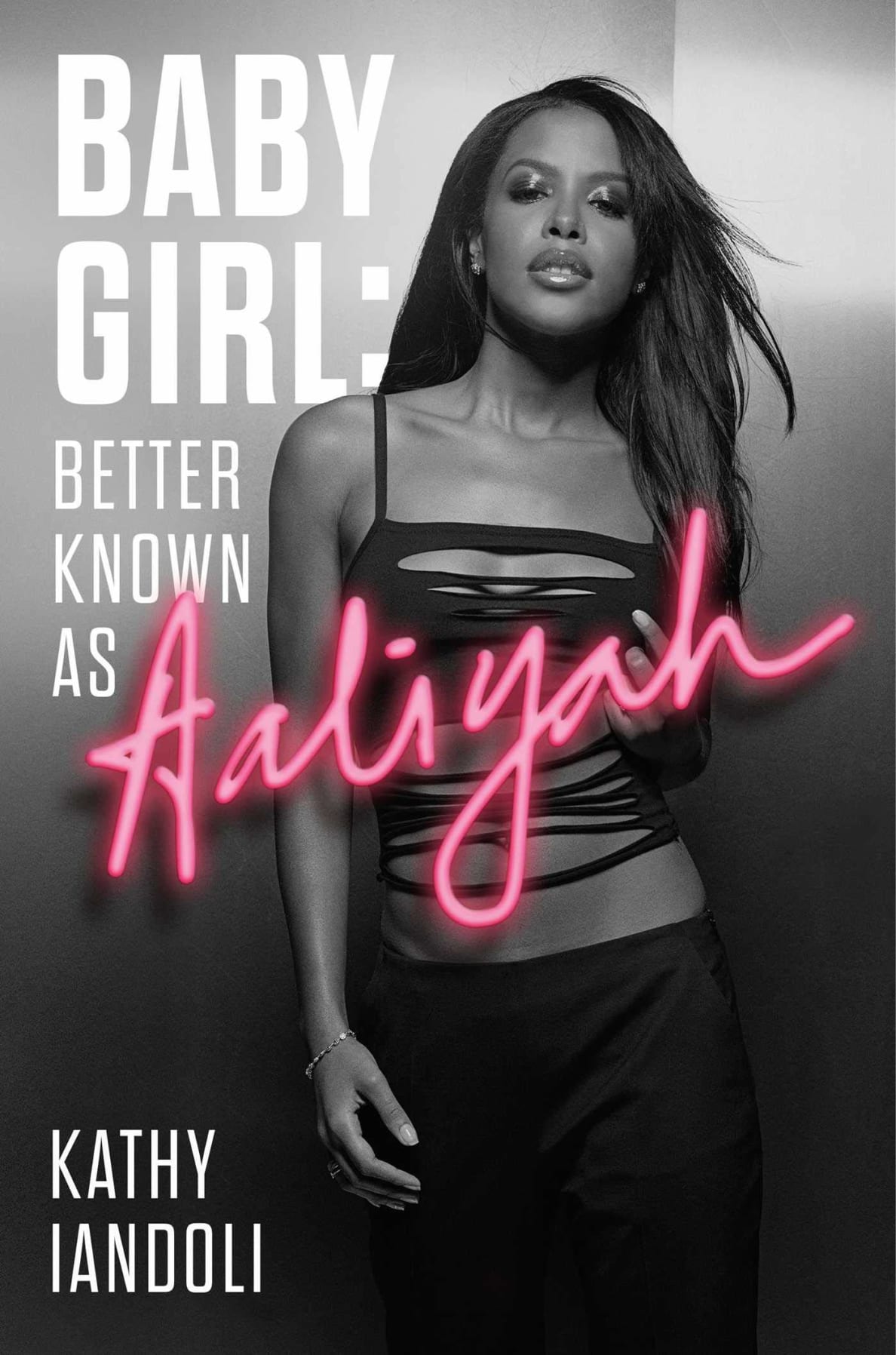Aaliyah Was Drugged Before Her Fatal Plane Crash, New Book Shockingly Claims

Kevin Mazur/WireImage
A new book alleges that the late pop star Aaliyah did not want to board the aircraft and was given a pill that knocked her out before her tragic plane-crash death in August 2001.
This month marks the 20th anniversary of rising star Aaliyah’s death. The Princess of R&B tragically died in a plane crash in the Bahamas after shooting the music video for “Rock the Boat,” a song that would become part of her final album.
Still, two decades later, an air of mystery surrounds what went so tragically wrong on Aug. 25, 2001, when an hour-long flight from the beachy shores of the Abaco Islands to Miami claimed the lives of the 22-year-old superstar Aaliyah D. Haughton and eight others. And, while her family and fans were still processing the sudden loss and an investigation into the crash was barely underway, Aaliyah’s death was quickly eclipsed by another tragedy, Sept. 11.
In the years since, there have been few explanations for why the plane was ever allowed off the ground in the first place. Arguments had broken out between Aaliyah’s entourage and the pilot over the plane being overweight. After the crash, it was quickly confirmed that the small twin-engine plane exceeded its maximum weight limit by several hundred pounds. Plus, the weight was not evenly distributed, which would have made the plane harder to control once it got into the air. The last significant update came in 2002, when a toxicology report found that the inexperienced pilot had cocaine and alcohol in his system.
It never quite added up to author and acclaimed music journalist Kathy Iandoli. Why would Aaliyah, a known anxious flier, be so insistent on getting on this small plane when it was clearly overloaded with baggage, especially when there was a chartered plane set to pick her up the next day?
But Iandoli stumbled across what she believes is the final piece of the puzzle in the process of researching and writing her upcoming book Baby Girl: Better Known as Aaliyah, out Aug. 17 from Atria Books, which has given her long-needed closure about the singer’s death, she tells The Daily Beast.

Atria Books
It came from a man in the Abaco Islands named Kingsley Russell, whose family ran a taxi and hospitality business in the area. Shortly after the death of Kobe Bryant in February 2020, Russell made a since-deleted YouTube video describing how the helicopter crash was triggering because it reminded him of the day he watched Aaliyah being taken onboard the fatal flight while she was asleep, knocked out by a pill that a member of her team had given her.
Minutes after he saw her entourage carrying a sleeping Aaliyah onto the plane despite her previous protests about boarding it, Russell said he remembers hearing the unforgettable sound of the aircraft crashing into the ground.
Russell’s account was a bomb to Iandoli, who for years struggled to accept the fact that Aaliyah willingly risked her safety and her team’s just to make it back to Miami that Saturday night.
“I remember when Aaliyah passed away, I was really upset,” Iandoli says. “The story kept saying that she was adamant about getting on the plane. I was almost upset with her. Why did you want to get on that plane so badly? I remember wrestling with this, being like, ‘Well, she wanted to get back to Damon Dash, she wanted to be with her team, and who wouldn’t want their stuff with them?’”
“In learning that she did not want to get on the plane, for someone like myself and so many other people, I think that’s closure for us,” she adds. “It’s an unfortunate closure… but I needed to hear she didn’t want to get on that plane; I needed to know that. The person who I thought had the most common sense in the world had common sense to not get on the plane. The fact that she was so adamant, staying in the cab, refusing—these are things we never knew.” (Aaliyah’s team did not respond to requests for comment.)
Iandoli gives the credit in tracking down Russell to Aaliyah’s superfans, particularly U.K.-based Sandy, who runs the popular page Aaliyah Archives. Sandy had stumbled upon Russell’s YouTube video and sent it over to Iandoli one night. “She’s like, ‘You got to get at him,’” Iandoli recalls. “‘Even if he’s lying, fine, let’s find out if he’s lying.’ That was basically what it came down to.”
Iandoli slid into Russell’s YouTube private messages, saying she was working on a book about Aaliyah and asked if he’d be willing to chat. Russell told Iandoli that he had received a handful of messages but was only interested in speaking to her because Aaliyah had told him during that final journey to the airport, “If you want to do anything, be an author.”
Feeling he was destined to talk to Iandoli, Russell began sharing a story that he had long been advised to keep to himself.
Russell had been 13 in 2001 and wound up being in Aaliyah’s orbit by working as her team’s baggage carrier, securing the tipped job by his aunt Annie Russell, who was handling the team’s transportation and scouting locations for filming. (Annie Russell gave testimony at the coroner’s inquest into Aaliyah’s death in 2003, citing concerns of the team having too much video equipment to take on the plane.) Kingsley’s mother was Aaliyah’s driver during her time on the island, which allowed Russell to chat with her on their way to the airport.
Already experiencing a two-hour delay due to the plane’s late arrival, Russell claimed that Aaliyah grew even more flustered when she finally saw the small plane and refused to board it. At the same time, the pilot was insisting that the plane would be too heavy with eight passengers, including Aaliyah’s 300-pound bodyguard, and all of their luggage and video equipment.
“[The airport staff] and Aaliyah had the common sense that the plane was overweight,” Russell is quoted in the book.
Pushing back against her team, Aaliyah climbed into the taxi van, complaining of a headache, and said she was going to take a quick nap. Meanwhile, her camp continued to try and convince the pilot to fly them with all their luggage, according to Russell. Eventually, Russell said a member of Aaliyah’s team came to check on her, and the singer reiterated that she did not want to get on the tiny plane and that she had a headache.
It was then, Russell claimed, that the team member produced a pill, which Aaliyah took and fell into a deep sleep, which she remained in when the pilot finally agreed to fly the group back to Florida.
“They took her out of the van; she didn’t even know she was getting boarded on a plane,” Russell said in Baby Girl. “She went on the airplane asleep.”
When Aaliyah’s body was recovered nearly 20 feet away from the wreckage, she was still strapped into her seat, slumped to the left with her 5-foot-7-inch frame folded over, according to the book. An autopsy report concluded that her survival was “unthinkable,” citing her extensive burns and major head trauma.
For Iandoli it’s a bittersweet revelation that Aaliyah was allegedly knocked out when she was taken onboard the plane, admitting she was unsure if she even wanted to include the pill detail in her book. She ultimately decided it “fit into this story that I think debunked something that we had been believing for all this time.”
“The only thing I’ve taken with me is that after 20 years, I can finally say that Aaliyah didn’t want to get on the plane,” she says. “That makes me feel a little better, but not much. This didn’t have to happen. She should still be here, and I think that’s the saddest part about it.”
“She deserved better,” Iandoli adds.
